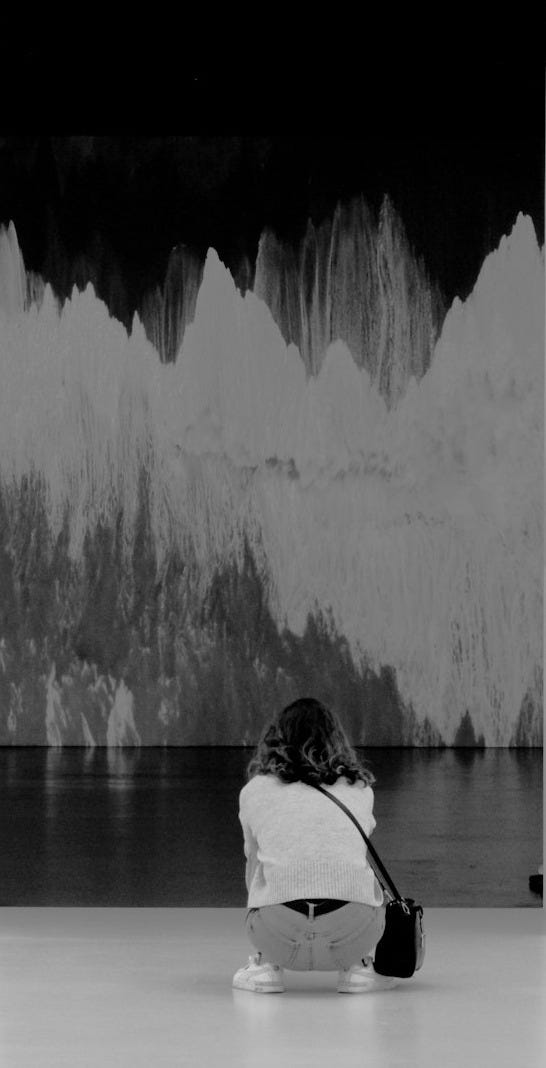Don't ghost your own writing. How to finish your creative project no matter what.
three strategies & a little cheerleading
You’re writing something so immersive and deeply universal that readers everywhere will forget their problems and disappear inside your well-placed words. You are motivated and have the tools, the skills, and the coffee. Your words flow, propelled by your brilliant idea for a novel, play, screenplay, or poem. You’re at it for hours, then you get up and live the physical life for a while.
This is where things get unpredictable. You return to finish a draft, or you don’t. The number of projects artists and writers begin does not always equal the number of completed projects. There are more unfinished projects in the clouds than completed drafts in front of readers’ eyes. Struggling to finish art is a universal problem.

I want to be clear: it’s okay to take breaks. I’m on one now, but I’m using that time to explore older work, scene scraps that I’ve tucked away, and it’s reminding me that all our individual stories are part of something larger.
It makes sense to walk away from art.
After all, the divine moments of inspiration pass. Life happens. Bills need to be paid, the world is on fire, AI takes your job, martial law is in place, or you just get distracted. The project simply loses its momentum. You still want to finish, but the story seems suddenly unrealistic, even daunting. Your brilliant idea begins to feel stale.
If you’re in this position, please remember that there are no wasted words. Before you abandon anything, the following strategies could be helpful:
1. Determine whether it’s the right time. Look at your work in a new way by trying the following exercise:
Set aside a small block of time to rewrite your opening lines or page. Do not look at your existing draft. Do it from memory. Is the essence still there?
If the answer is yes, it is the same story (possibly even a tighter version), then you MUST finish this project now. It still lives and breathes inside you, and it is time to purge. If it feels like a completely new project, great! Maybe you haven’t finished because you haven’t found the work’s heartbeat yet. Look for lines that are most alive and follow them home.
2. Once you’ve determined a reason for the forward trajectory, the best way to work through the low points, or return to that abandoned manuscript, is to set a series of small, attainable goals at all stages.
Set a routine that is as low-maintenance as possible. Five minutes of writing or editing a day can do wonders.
Record the number of words you’ve written or edited, or the number of minutes you’ve written/edited. Add this up weekly and text the number to a friend for accountability.
3. Write down your overarching goal. This creative project is a mission, after all.
Fill in the following: “I am writing this story/poem/play because ______________.”
However you choose to finish this sentence, put it next to your computer so you have to look at it every time you sit down. It’s as simple as this: the path will emerge if you can remember where you’re going. And if you determined the work is worth abandoning, hey, you’ll have a lot of words to play with. Take the best sentences and move on.
Either way, now you’re on a journey.
With momentum to arrive at a final draft.
You’ll get there. I know you will. I’m cheering you on.
xo Jen
My original musings on this topic appeared in Chill Subs’ Write or Die publication.
Check out similar posts:
Amanda Gontijo (PsyM) I’ve wrote many articles during my time in my masters, and other pieces, however I couldn’t find a teacher to mentor me and to then be able to publish so I had a lot of things “in storage”. I want now to share my work, some of my perspectives and things I’ve wrote/built along time. I’m trying to do something with all the study and production years. I write about psychology (my work) and things I’ve researched during my masters. It might be an attempt to feel useful (?).
Joe Nichols Because writing, when I get that perfect line, that perfect verse is as close as I’ll ever get to touching another plane. Another existence. Something beyond me. And reading is the same way. We are human. Until we write.
stories connect us Stories connect us. In a world that seeks to separate us, I write stories about universal emotions and life experiences so that we can see how alike we are. Love more/hate less.









I write with intention. I want my stories to make a difference, give an escape, and be remembered long after the last page is read. To bring a new perspective and open eyes and minds.
Hi Jenn, all of this speaks to me. All of the drafts that are left But not forgotten because life happens.
So many gems in this.
I will return to your tips.
Most of all happy birthday to you tomorrow. Have an exquisite day and keep writing.
Happy I found you today
Thank you